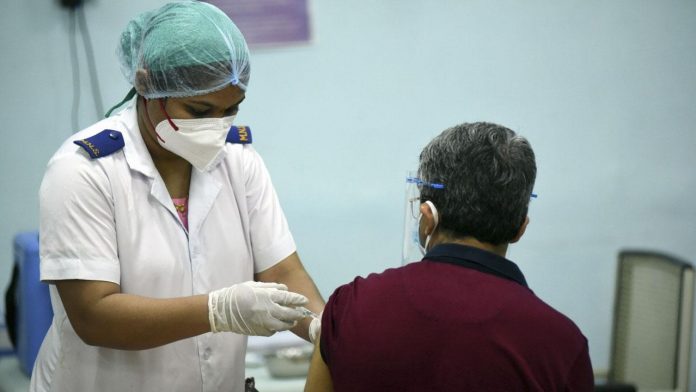

UNITED NATIONS MUST EFFECTIVELY INTERVENE TO ENSURE SUPPLY TO POOR COUNTRIES
Dr. Arun Mitra
As predicted by the scientists, the third wave of SARS COV -2 is spreading fast around the world. First case of the variant of the virus, the Omicron was reported in South Africa only a few weeks ago. Soon it spread to Europe, America and now it is spreading tentacles in Asia including our country. The United Kingdom recorded 1.40 lakh new cases on 8th January 2022. The number of new cases in the USA on the same day stood at 4.43 lakh and India 1.59 lakh. This number is likely to go high by the middle of February. During the second wave of Delta variant the highest number in India was 4.14 lakh cases on 6th May 2022. The Delta variant was highly deadly and was the cause of loss of human lives in large number. The Omicron is said to be not as deadly; however it may be too early to give a firm opinion on this as the mutations in viruses are well known. More over at present there is a combination of SARS COV -2 viruses causing the infection.
The Delta variant virus attacked the lungs causing respiratory crises. Therefore the number of people who required admission in the hospitals was very high. In contrast the Omicron virus has been found to affect more on the nose and throat so the symptoms resemble ordinary flu. However the World Health Organization (WHO) has warned that it should not be taken lightly. The WHO Director General Tedros Adhanom Ghebreyesus said that “the more infectious Omicron variant of coronavirus appears to produce less severe disease than the globally dominant Delta strain, but should not be categorised as “mild”.
Laxity by any one, the government or the people can be dangerous. The COVID appropriate behaviour in the form of using masks, washing hands, sanitising and maintaining 6 feet distance from one and another must be followed. Respiratory droplets can be transmitted through coughing, sneezing, contact with contaminated surfaces, or even through inhaled aerosols; therefore, each individual must take adequate steps to reduce their exposure to these particles by wearing masks and practicing safe social distance measures.
Wearing of proper mask is very important. The mask must fit on the face properly s that air cannot enter from sides but has to pass through the surface of the mask. Diameter of the virus has been found to range between 50 nm to 140 nm. Certain masks are considered more effective at minimizing the risk of exposure, particularly N95 masks. The protective capabilities offered by N95 masks are considered as it can remove at least 95 per cent of all particles with an average diameter of 300 nm or less. The surgical masks are tripe layered masks which offer protection. The cotton masks have large sized pores and would be porous to SARS-COV-2 particles, though it may render limited protection by blocking aqueous micro-droplets of saliva (1). Simple measures as per the scientific information about COVID appropriate behaviour are the saviours.
If the Omicron does not cause serious harm then it may turn out to be boon as if large number people get infected, but not taken seriously ill, there may develop herd immunity in the population which could be the beginning of end of the pandemic.
In the last two years when the first case of SARS COV-2 was reported we have become much wiser in terms of its diagnosis, management and prevention. Vaccination is a big step forward. Omicron can infect the double vaccinated person as well but the effect is relatively milder. Therefore it is important that the vaccine targets are achieved globally. Recently addressing a press briefing, the head of global health body, the WHO repeated his call for “greater equity globally in the distribution of and access to Covid-19 vaccines”. But he cautioned ‘based on the current rate of Covid-19 vaccine rollout, 109 nations will miss the WHO’s target for 70 per cent of the world’s population to be fully vaccinated by July’. The number of vaccinated population varies drastically among the nations. Performance of some countries in vaccination is a real cause of concern.
Syria has vaccinated only 12 per cent of its population by 6th January 2022. Similarly percentage of population vaccinated in Afghanistan is 10 per cent, Sudan 8.9 per cent, Ethiopia 7.9 per cent and Somalia only 7.4 per cent. This is in contrast to 99 per cent vaccinated in UAE, 92 per cent in Cuba, China 87 per cent, UK 76 per cent and Sri Lanka 74 per cent. India has vaccinated 63 per cent population (2). Since the world is well connected these days, it is important that all the countries around the world must achieve the vaccination target by July as envisaged by the WHO. This is not so difficult a task. It requires political will on the part of the world leaders. In fact the UNO should monitor the whole process and ensure that the vaccines reach the poorly performing countries in sufficient numbers so that they can vaccinate the population on time. If needed, even the trained man power for the job should be made available in these countries. Any inequity in vaccination will hamper the objective of getting rid of the Pandemic soon. (IPA Service)
Related